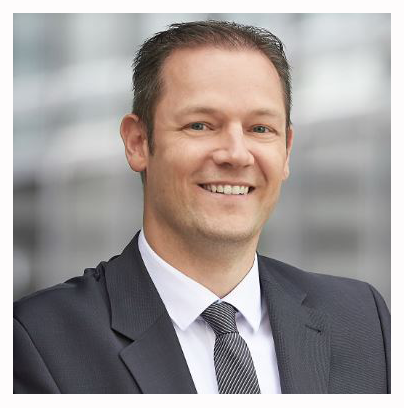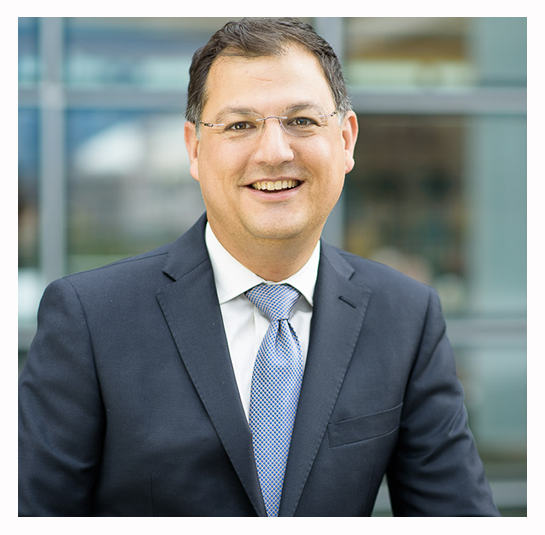In the second of a three part series covering the most recent developments in the German market, SRP looks at the main distributors, the market trends, and what the main players expect in the short-term.
LBBW remains Germany’s top issuer and distributor of structured products in the primary market, according to SRP data. Last year, the German state-owned bank sold over 2,079 primary market products worth an estimated US$4.5 billion. In 2019 year to date, LBBW remains on top with 1,851 products marketed worth an estimated US$3.1 billion.
The bank has expanded its structured product offering recently by entering the sustainable investment space with several green certificates aimed at private investors including a step up green bond structure and a suite of index-linked autocall certificates.
“Investors are mainly demanding products that enable positive returns in either sideways or upward market movements,” says Andreas Hänel (right), product manager and certificates expert at LBBW. “The focus here is primarily on product structures with safety buffers.”
According to Hänel , there continues to be great demand from our client base for autocall structures, which remain at a stable level. “For other types of products, we cannot see any changes in terms of sales,” he says. “But recently, we have noticed that product structures with capital protection have been less in demand.”
The market for self-driven investors was challenging in 2019 as suggested by market turnover – which was down by 20%, according to Dominik Auricht, head of public distribution sales at UniCredit.
“On one hand, in the retail segment of the market, domestic distribution networks owned by the state banks had to deal with the consequences of the zero interest rate environment,” he says. “This has had an impact on the ability manufacturers have to structure capital-protected products.
“On the other hand, despite the subdued market activity, the first half of the year recorded significant activity around interest rate-linked structures, which the Landesbanks had stopped completely.”
SRP data shows that DekaBank was the second most active provider in Germany’s retail primary market in 2018 with 1,479 products worth a combined US$2.9 billion. In 2019 year to date there were 1,167 primary market products offered to German retail investors with an estimated US$1.8 billion.
Trends
Like in many other markets, sustainability has become a big trend - a topic that German banks expect to grow in momentum and drive new activity - in particular when it comes to products with a sustainable focus.
“[We launched our] first certificate on the German market of which the proceeds are invested in energy-efficient buildings and renewable energy projects in accordance with the LBBW Green Bond Framework,” says Hänel . “In addition, LBBW and MSCI have developed a new sustainability index, which is used as the underlying for our autocall structures.”
According to Hänel , there is an increasing interest from distribution partners and end customers in the topic of sustainability in investment. “However, due to the not yet final regulatory framework, it will certainly take some time before a corresponding supply standard has developed,” says Hanel.
From a product type perspective, uncertain investors looking for yield continue to feed the autocallable narrative, which remains a dominant factor in the market.
“The outstanding volume of autocallable products has grown dramatically because it’s a relatively straightforward way of delivering yield,” says Auricht (right). “The problem for investors is, of course, timing as volatility can leave them on the sidelines.”
In order to address this situation, Unicredit has designed a ‘switch structure’ – which offers an alternative to other products on the market.
“German investors are typically risk averse so we gave them the opportunity to invest a certain amount upfront, which will be used to purchase the equity over a period of one year to ensure cost averaging,” Auricht says. “After a year, investors receive a small coupon of one percent and at maturity they get the funds, regardless of the performance.
He explains: “This product is extremely popular in Germany. Investors know the wrapper, but usually postpone investing in them because they never find the right time. With this product, we have simulated the cost averaging of the funds the investor always wanted to buy but hesitated. With the solution to buy the funds over a period of time, we achieve the average price of the fund.”
The German market, in general, remains the biggest market for capital-protected products in Europe, which are mostly equity and fixed income.
Market outlook
According to Hänel , there are a number of items outstanding that could have an impact in the market including the shift towards digitisation (eg optimisation of bank processes); the ECB low interest rate policy; new regulatory requirements; and new players like fintechs offering banking services; all of which have resulted in an increase in internal expenses and costs
“[However, our] outlook is positive as we continue to see strong demand for primary market products in all market phases,” he says.
“In principle, increasing regulation presents issuers, distribution partners and end customers with enormous challenges and has a corresponding impact on securities advice,” said Hussam Masri, head of private banking, product management and product sales at DekaBank. “However, in our estimation, fortunately, the joint efforts of all have not resulted in any appreciable negative impact on the volume invested. We currently see no significant short-term events and therefore expect a steady to slightly increasing demand for subscription products in the next few weeks.”
The increasing cost of dealing with structured products has resulted in the industry being targeted by zero fee brokers.
“Regulation has made it extremely hard to deliver advice,” says a senior structured products salesman. “Overregulation has achieved exactly the opposite we wanted to achieve. Retail investor are now overprotected and the new rules have made it hard and costly for banks to deliver advice, and they just gave it up. A number of banks in Germany are not giving equity investment advice as this is no longer remunerated.”


